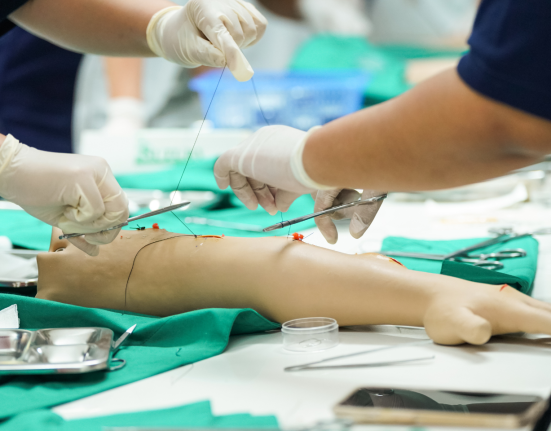Becoming a maternity nurse is one of the most rewarding paths in the nursing profession. If you’re someone who thrives on nurturing, calm reassurance, and hands-on support for new mothers and babies, this might be your calling. Maternity nurses are more than caregivers—they’re educators, emotional anchors, and trusted guides during one of life’s most delicate transitions.
Whether you’re a student nurse planning your specialisation or a registered nurse (RN) looking to switch fields, this guide will walk you through everything you need to know about becoming a maternity nurse.
What’s the Difference Between a Maternity Nurse and a Midwife?
This is one of the most commonly asked questions—and an important one.
Midwives and maternity nurses both work with mothers and babies, but they serve different roles at different stages of the childbirth journey.
| Role | Midwife | Maternity Nurse |
|---|---|---|
| Focus | Pregnancy, labour, and birth | Postnatal care (after the baby is born) |
| Setting | Hospitals, birthing centres, home births | Family homes, postnatal wards, clinics |
| Duties | Prenatal check-ups, labour delivery, emergency management | Newborn care, breastfeeding support, maternal recovery |
| Training | Specialised midwifery education | General nursing + postnatal training |
In short, midwives deliver babies, while maternity nurses care for mother and baby after the birth—especially during the first few weeks. Many families work with both during different phases of the journey.
What Does a Maternity Nurse Do?
A maternity nurse is a trained healthcare professional who supports mothers and newborns during the postnatal period—typically the first 4–6 weeks after delivery. Their role often bridges the gap between hospital discharge and the family adjusting to life with a newborn.
Typical responsibilities include:
- Caring for newborns (feeding, bathing, changing, settling)
- Supporting mothers with breastfeeding and recovery
- Monitoring signs of postnatal depression or health complications
- Educating parents on infant care, hygiene, and safe sleeping
- Maintaining a clean, calm, and nurturing environment
Depending on the arrangement, maternity nurses may work live-in, on daily visits, or overnight shifts to help families transition smoothly.
How to Become a Maternity Nurse
1. Start with a Nursing Qualification
You’ll first need to qualify and register as a nurse:
- Singapore: Enrol in an NITEC, diploma, or degree in nursing approved by the Singapore Nursing Board (SNB).
- Malaysia: Complete a Diploma in Nursing or Bachelor of Nursing at an accredited institution and register with the Malaysian Nursing Board.
2. Gain Experience in Maternal or Neonatal Care
Experience in relevant units helps build your confidence and competence:
- Labour and delivery wards
- Postnatal or maternity wards
- Neonatal Intensive Care Units (NICU)
- Confinement centres or home-care support services
Even if you start in general nursing, you can rotate or apply to maternity-related departments.
3. Pursue Postnatal or Infant Care Training
While optional, short courses in postnatal care, lactation support, or infant first aid will give you a competitive edge—especially if you’re seeking freelance or private home placements.
Some agencies also accept those with confinement nanny training, provided you have a strong understanding of both modern hygiene and cultural practices.
4. Explore Employment Opportunities
You can work as a maternity nurse in:
- Hospitals or postnatal wards
- Private families (live-in or shift-based)
- Confinement agencies or wellness centres
- Paediatric or women’s health clinics
Flexibility, discretion, and emotional intelligence are highly valued in private maternity care settings.
Key Skills Every Maternity Nurse Should Have
To truly succeed, maternity nurses need more than clinical knowledge. You’ll need:
- Empathy & Patience: Supporting first-time parents requires emotional sensitivity.
- Strong Observation Skills: Spotting early signs of jaundice, feeding issues, or maternal distress is vital.
- Cultural Understanding: Especially in Singapore and Malaysia, respecting confinement traditions is important.
- Calm Under Pressure: Babies can be unpredictable—and so can new parents.
Can You Be a Maternity Nurse Without a Nursing Degree?
In some settings, yes. Titles such as confinement nanny, infant care assistant, or postnatal doula don’t always require formal nursing credentials. However, if you want to work in a clinical environment, earn a higher salary, or be formally recognised as a maternity nurse, having a nursing qualification is essential.
Building a Meaningful Nursing Career in Maternity Care
Becoming a maternity nurse is a deeply meaningful career path that blends medical skill with emotional care. Whether you’re guiding a first-time mother through her first night or helping a baby settle into a routine, your presence provides comfort and confidence in a crucial chapter of life.
With the right qualifications, experience, and compassionate heart, you can make a powerful difference in families’ lives—and build a rewarding nursing career in the process.














